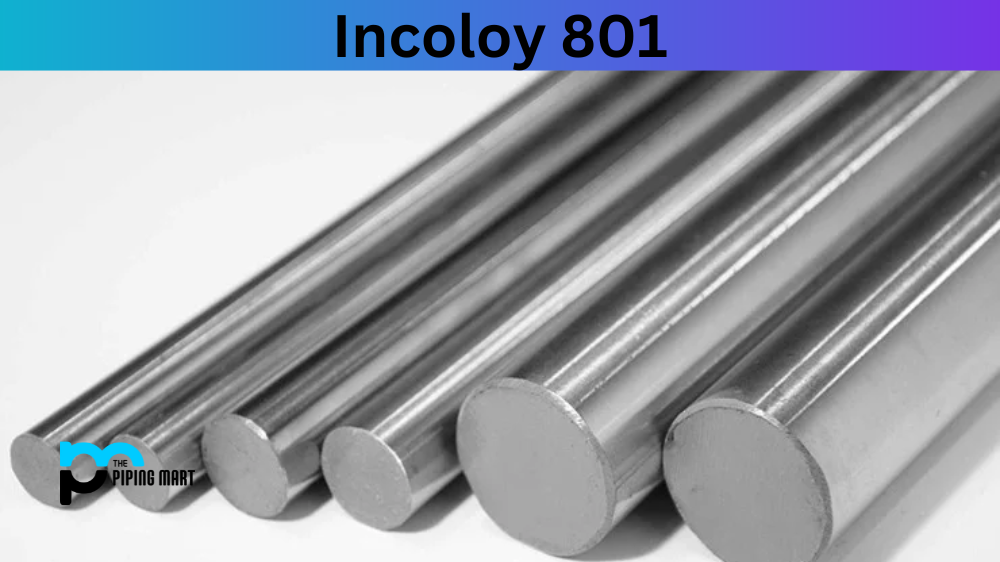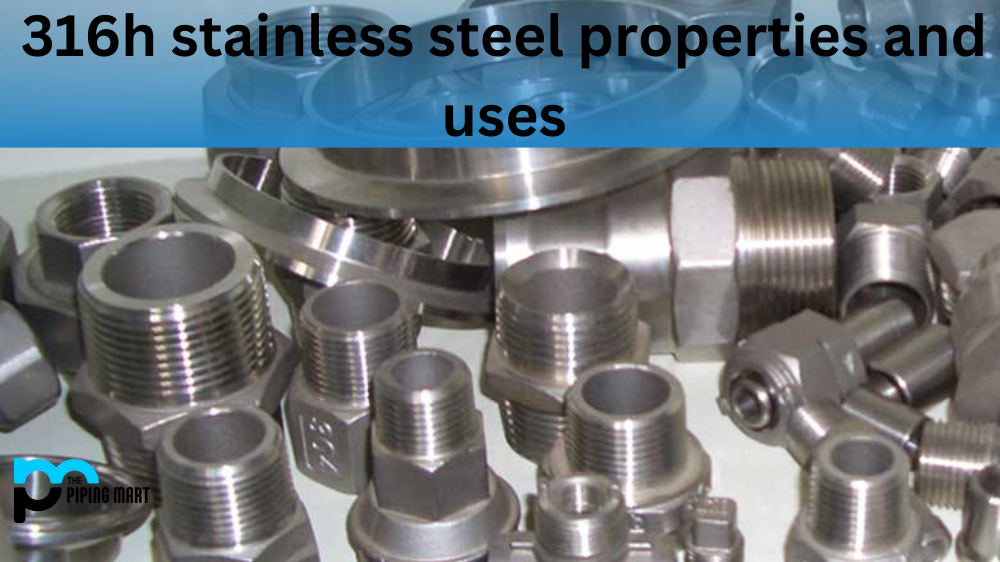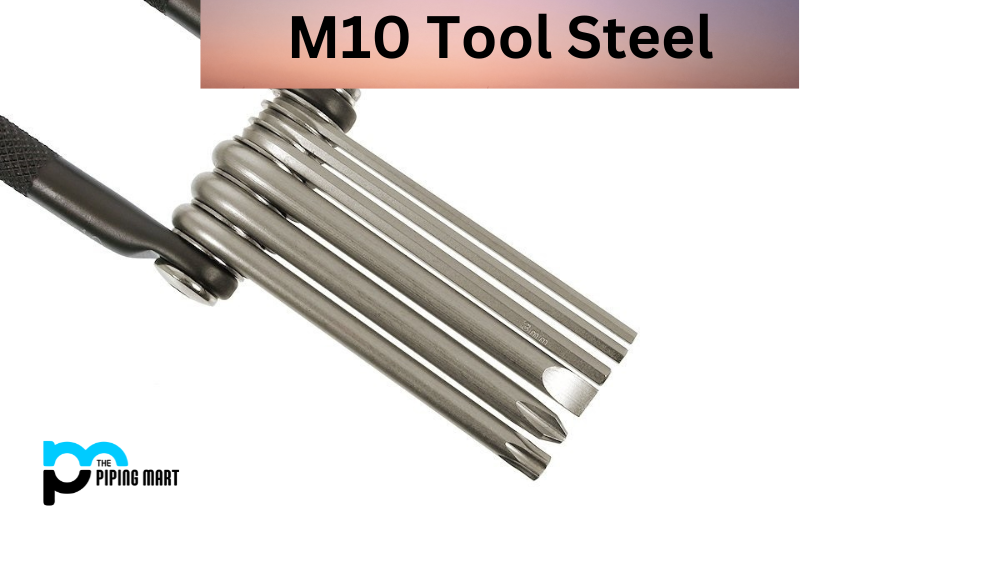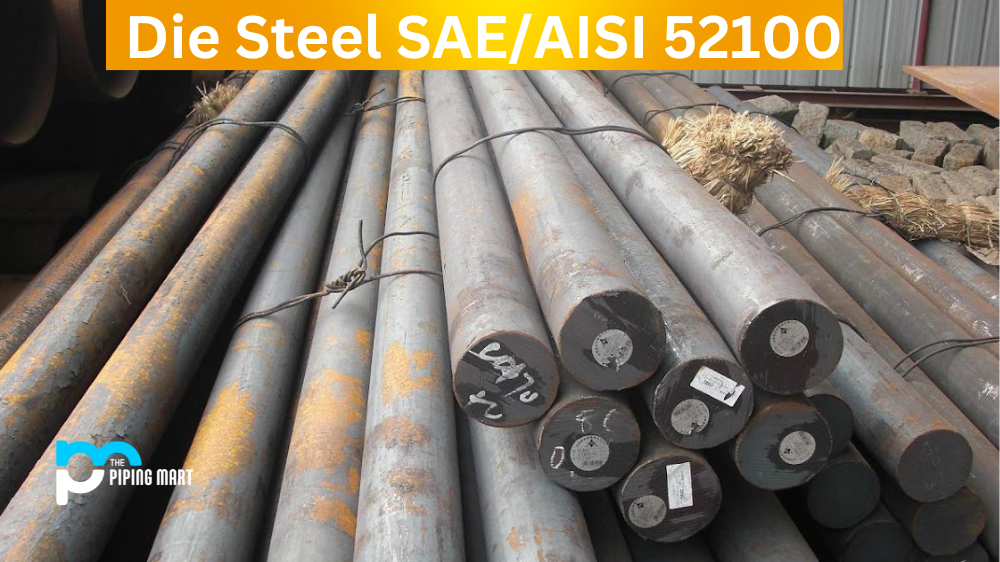The field of metallurgy has been continuously evolving since the early days of human civilization. Over the years, we have discovered several advanced materials that have revolutionized how we design and develop machines and structures. Incoloy 801 is one such material that has gained immense popularity in recent years. In this blog post, we will delve deeper into the properties, applications, and uses of Incoloy801 and how it has become a game-changer in several industries.
Incoloy 801 Composition
Incoloy 801 is a nickel-iron-chromium alloy with small additions of titanium and aluminium. Including these elements enhances its high-temperature strength and makes it resistant to oxidation and corrosion. The composition of Incoloy 801 makes it a suitable material for applications that require high-temperature strength and resistance to corrosion.
| The Chemical Composition | Incoloy 801, % | Incoloy 802, % |
|---|---|---|
| Nickel | ≥32 | ≥32 |
| Chromium | ≥20.5 | ≥21 |
| Iron | Balance | Balance |
| Carbon | ≤0.05 | ≤0.35 |
| Aluminum | – | ≥0.60 |
| Titanium | ≥1.10 | ≥0.70 |
| Copper | ≥0.15 | – |
Incoloy 801 Mechanical Properties
Incoloy 801 has impressive mechanical properties such as tensile strength and yield strength. Its ultimate tensile strength ranges from 90 ksi to 158 ksi, while its yield strength varies from 32 ksi to 135 ksi. These mechanical properties are essential in applications such as furnace equipment, heat-treating baskets, and petrochemical industries requiring high strength and durability.
| Tensile Strength, min. | Yield Strength, min. | Elongation, min. | Reduction in Area, min. |
|---|---|---|---|
| Mpa | Mpa | % | % |
| 1160 | 1035 | 15 | 53 |
Incoloy 801 Physical Properties
Incoloy 801 is a non-magnetic alloy with excellent thermal conductivity and electrical resistance. It has a density of 0.297 lb/in³ and a melting point of 1370°C. The material also has a coefficient of thermal expansion of 12.3 µm/m°C, which allows it to expand and contract without significant deformation. These physical properties make Incoloy 801 an ideal choice for high-temperature applications.
| Density | Melting Range | Specific Heat | Elastic Modulus |
|---|---|---|---|
| g/cm3 | °C | J/kg. k | Gpa |
| 8.0 | 1372-1400 | 485 | 200 |
Incoloy 801 Uses
Incoloy 801 is widely used across several industries, including petrochemicals, aerospace, and furnace equipment. It’s mainly used in applications that require high-strength and resistance to oxidation and corrosion, thanks to its impressive mechanical and physical properties.
Incoloy 801 Corrosion Resistance
Incoloy 801 has excellent corrosion resistance properties, making it suitable for use in harsh conditions. The presence of titanium and aluminium elements in the alloy prevents the formation of chromium carbides, which can cause intergranular corrosion. Additionally, this material is resistant to sulfate-reducing bacteria attacks in seawater environments.
Incoloy 801 Heat Treatment
Incoloy 801 can be easily heat-treated to enhance its high-temperature strength and durability. The material can be solution annealed at 1093°C before being cooled rapidly. This heat treatment process ensures that the material has improved grain structure, enhancing its strength and resistance to high-temperature oxidation.
Incoloy 801 Machining
Incoloy 801 can be machined using conventional machining techniques. However, the material is prone to work hardening, so caution must be taken when machining it. It’s, therefore, essential to use carbide tooling, low cutting speeds, and high feed rates when machining Incoloy 801. This will reduce the chances of work hardening and prolong the life of the cutting tool.
Incoloy 801 Welding
Incoloy 801 can be welded using several welding techniques, including Gas-Tungsten-Arc-Welding (GTAW/TIG), Gas-Metal-Arc-Welding (GMAW/MIG), and Submerged-Arc-Welding (SAW). It’s, however, crucial to take special precautions when welding this material to prevent cracking, porosity, and intergranular corrosion.
Conclusion
Incoloy 801 is a material gaining popularity in high-temperature and corrosive environments. Its impressive mechanical and physical properties make it an excellent choice for petrochemicals, aerospace, and the furnace industry. With this blog post, we hope you better understand the properties, applications, and uses of Incoloy 801 in various sectors. Whether you need a material that can withstand harsh environments or high-temperature applications, Incoloy 801 may be the solution you’ve been looking for.

A passionate metal industry expert and blogger. With over 5 years of experience in the field, Palak brings a wealth of knowledge and insight to her writing. Whether discussing the latest trends in the metal industry or sharing tips, she is dedicated to helping others succeed in the metal industry.




